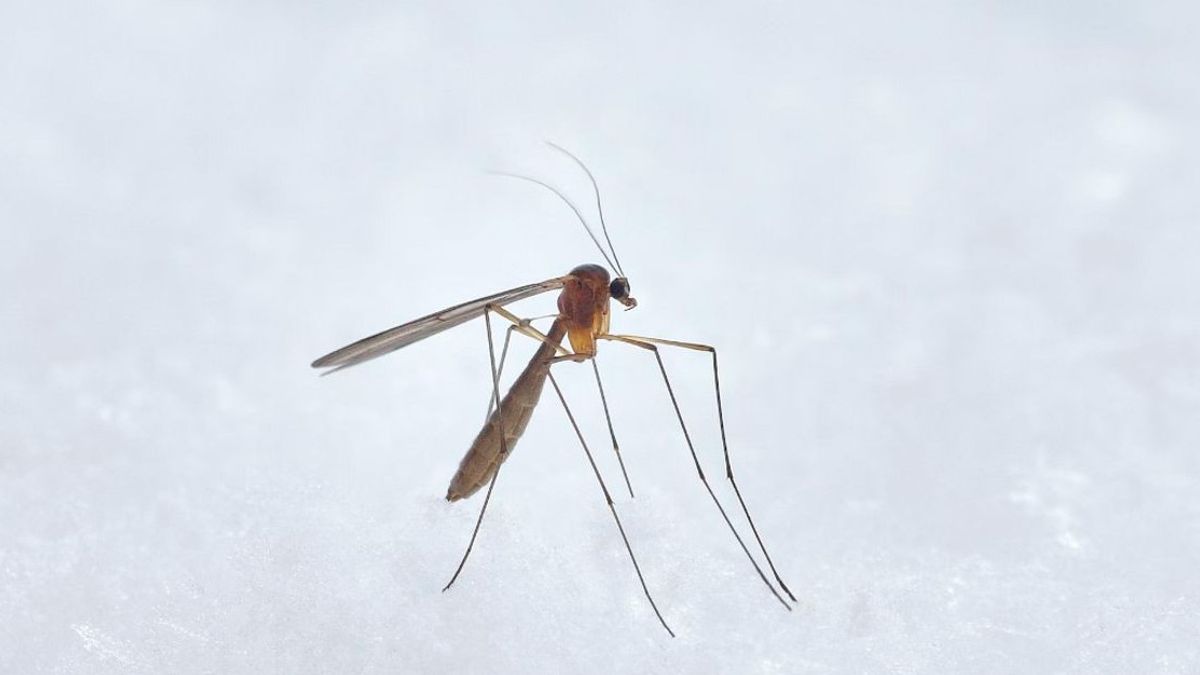JAKARTA - Professor of Biology at the Faculty of Mathematics and Natural Sciences (FMIPA) at the University of Indonesia (UI) Prof. Anom Bowolaksono explained that Wolbachia bacteria do not infect humans and are natural bacteria found in the bodies of insects, including mosquitoes.
In addition, he said, in several countries, such as Australia and Singapore, this innovation has also implemented and succeeded in effectively suppressing the rate of Dengue Hemorrhagic Fever (DHF) cases.
"The problem for humans is how to reduce dengue sufferers. Until now, there is still no cure for dengue disease. Therefore, one alternative is to break the vector chain by suppressing the population of mosquitoes carrying the Dengue virus," he said as quoted by ANTARA, Saturday, December 2.
Because for an outbreak or disease, according to him, it must be seen from the number of vectors and the number of sufferers. If the number of vectors drops, the disease will not be infected properly and will lead to a decrease in the spread rate.
Prof. Anom said research on Wolbachia bacteria was able to reduce mosquito capacity by targeting the reproductive tissue.
If Wolbachia bacteria are male, it will make the male mosquito more feminine and cannot produce spermtozoa. Likewise for female animals, Wolbachia will attack the reproductive tissue and cause female mosquitoes to not be able to lay eggs.
Later, mosquitoes will not develop and will not be able to transmit the Dengue virus to humans who are bitten.
SEE ALSO:
Prof. Anom also explained that the mosquito, which has a Wolbachia bacteria, has nothing to do with inflammation of the brain or Japanese ensephalitis, as has recently become a hot topic of conversation on social media.
He said the inflammation of the brain of Japanese encephalitis was indeed spread by mosquitoes. However, the mosquito that spreads it or as a vector is the Culex mosquito. Meanwhile, those infected with Wolbachia bacteria in Indonesian countries are Aedes aegypti mosquitoes.
This has also been confirmed by the Director General of Disease Prevention and Control of the Ministry of Health (Kemenkes) Maxi Rein Rondonuwu that the spread of Wolbachia mosquitoes is ensured to be safe.
This innovation has also gone through studies and risk analysis by involving top researchers in Indonesia. He also said that in its implementation it still requires regular monitoring and evaluation, so that it can continue to monitor and know the development of the spread of Wolbachia mosquitoes.
In the DPR Commission IX Working Meeting, Minister of Health (Menkes) Budi Gunadi Sadikin said that there were five cities planned by the Ministry of Health in the spread of the Wolbachia mosquito, namely West Jakarta, Bandung, Semarang, Bontang, and Kupang.
This region is the target of trials based on the relatively high rate of dengue cases, which is above the global average of 10 per 100,000 population.
The English, Chinese, Japanese, Arabic, and French versions are automatically generated by the AI. So there may still be inaccuracies in translating, please always see Indonesian as our main language. (system supported by DigitalSiber.id)


















